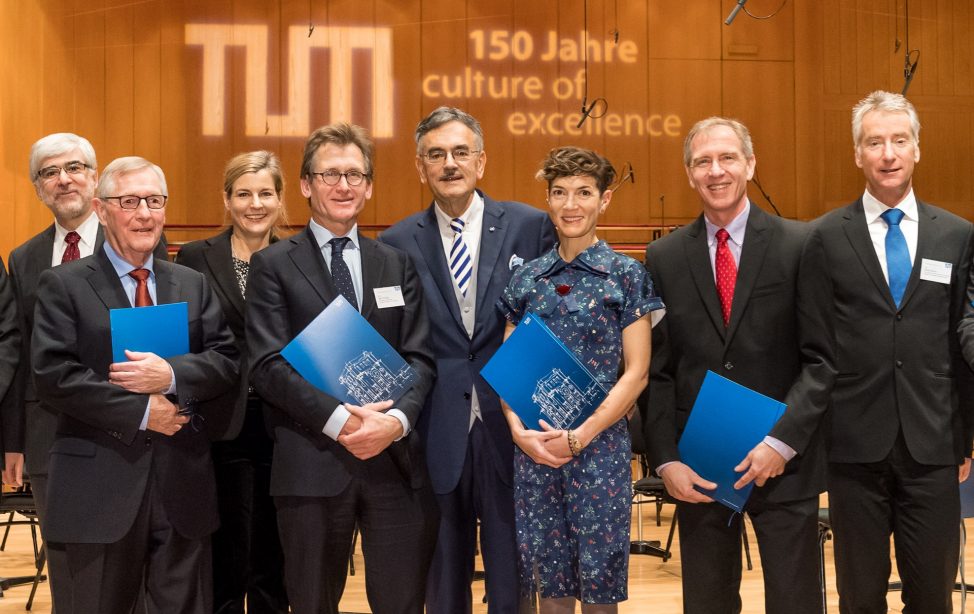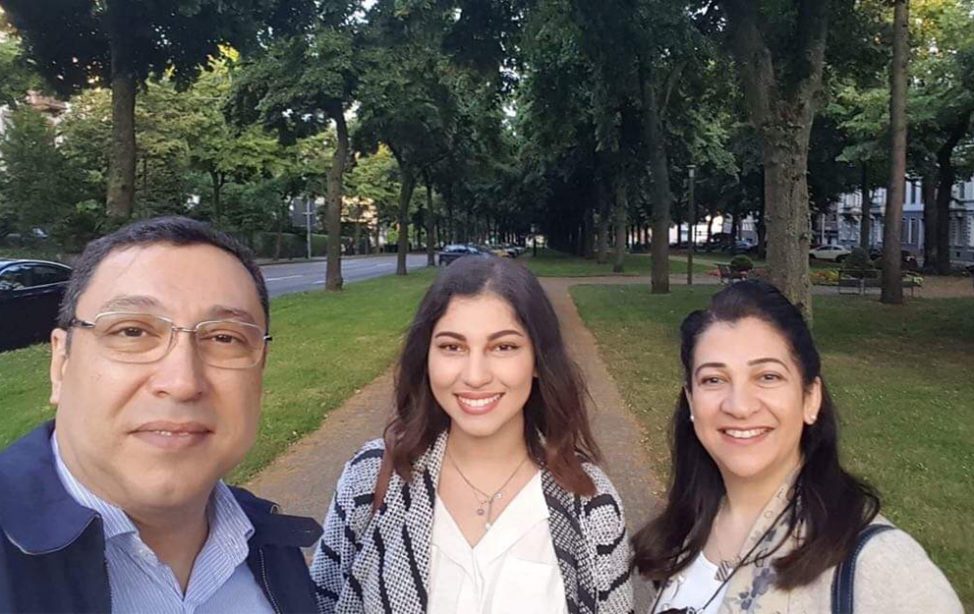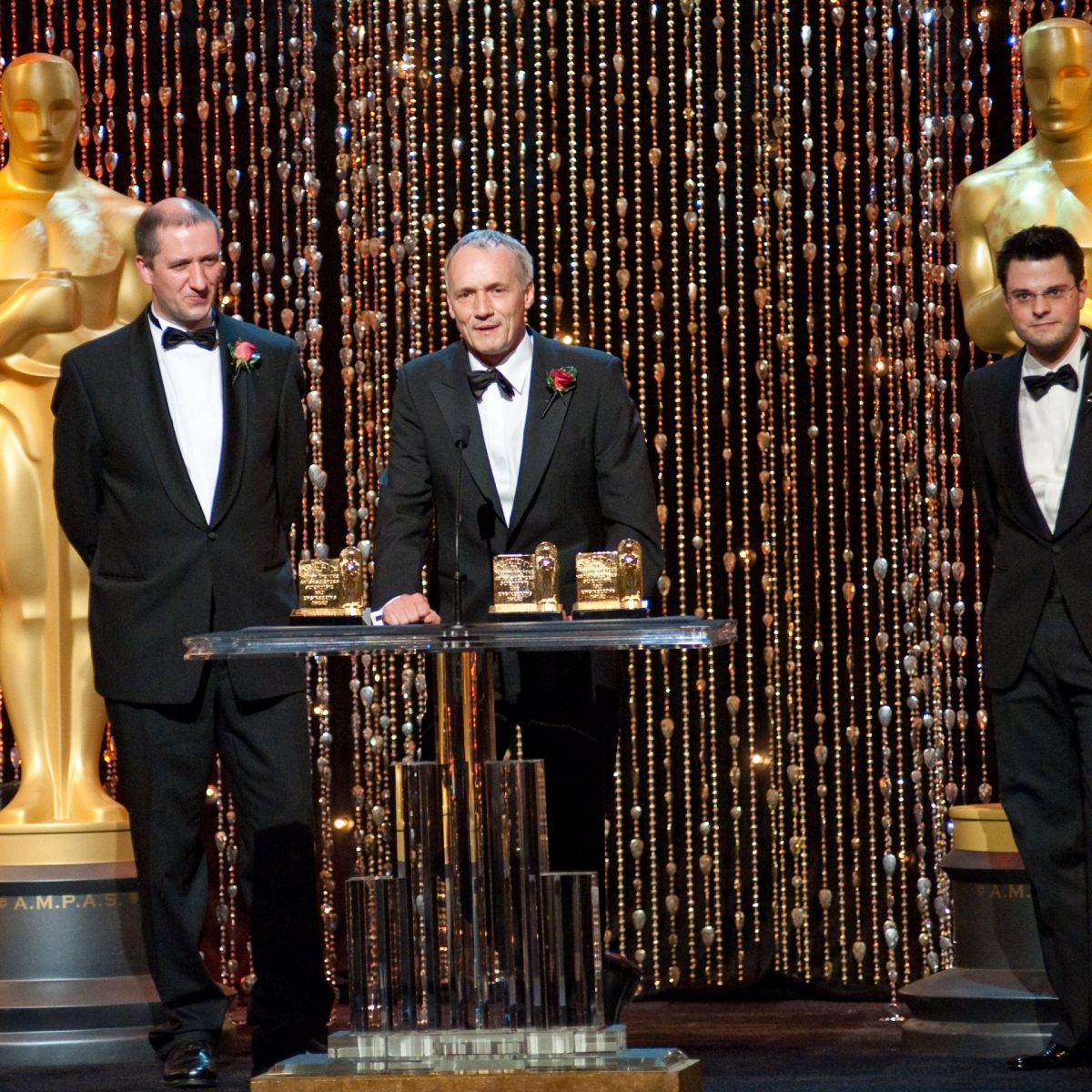
Welcomed at the Technical Olympics: In 2010 Prof. Dr. Reimar Lenz (center) together with two other ARRISCANNER developers - Michael Cieslinski (left) and Bernd Brauner (right) - received the internationally renowned film technology Oscar in Beverly Hills (Image: Lenz / A.M.P.A.S.).
The list of his prizes and awards is long. Already as a young company founder and shortly after his habilitation he received the Siegfried Werth Research Prize in 1990. In the same year, he received the DAGM award for his groundbreaking work on high-resolution color cameras.
But 2010 in particular is a year that the technology pioneer will never forget – with the very best memories of the “Nobel Prize for Engineers, which unfortunately does not exist”, as the modest information technician and company owner puts it in his own words.
We will have to learn faster and faster in the future.
Gold glittering “Oscar” night
In 2010, in front of his family and film professionals, he received one of the highly coveted “Scientific and Engineering Awards”, which each year go to outstanding film technicians, developers and scientists who have made a decisive contribution to the cinema industry.
Lenz had made a significant contribution towards developing the ARRISCANNER, as well as its central component, the so-called ALEV sensor, which he named after his daughter. Of course, the many awards make him proud, but Reimar Lenz does not place that much value in all the attention he gets.
Instead, he prefers to work on the next generation of one of his numerous inventions with his brother Dr. Udo Lenz. Together with him, Reimar Lenz began developing and producing the first 20-megapixel cameras in a backyard in Schwabing in the 1980s. In principle, the division of work between them was determined pretty early on: “I am more of a practitioner,” explains Reimar Lenz, “while my brother is responsible for the theory and image processing algorithms as a mathematician and physicist”.
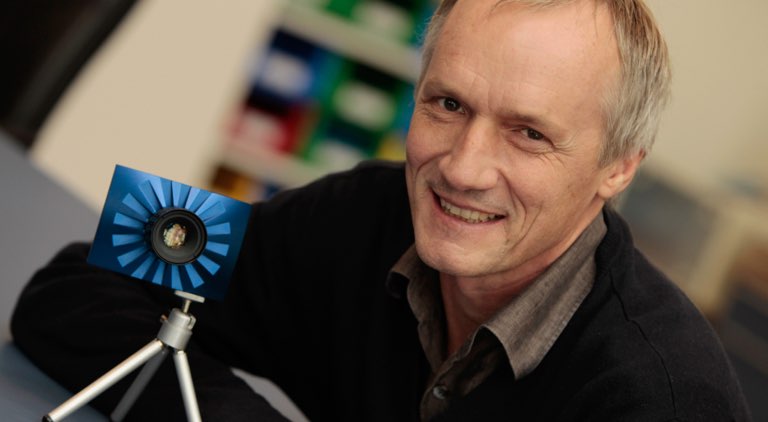
Prof. Dr. Reimar Lenz with one of his cameras (Image: facesbyfrank).
A coordinated family undertaking
“Developing, producing and selling” has always been the basic entrepreneurial principle of the Lenz brothers. Without an expensive online presence or quirky advertising material, the simple fact is that Reimar Lenz can fall back on many years of quality and great entrepreneurial success, although he is well aware of the difficulties of the digital market.
“We will have to learn faster and faster in the future. In the past, all we developed were special still cameras with CCD sensors, but now we have to work increasingly with CMOS sensors for Zeiss in Jena, for example”.
During a visit to the company headquarters in Ainmillerstraße, it is therefore hardly surprising to see Reimar Lenz holding a new camera prototype in his hands, albeit still in the blue camera body of the predecessor model.
What advice would he like to give TUM students? “It is vital that you find something that is application-oriented, something that is needed,” explains Reimar Lenz. He always emphasized this in his lectures on digital photography and videometry. “So you don’t have to spend your entire life looking for customers,” he adds with a smile.
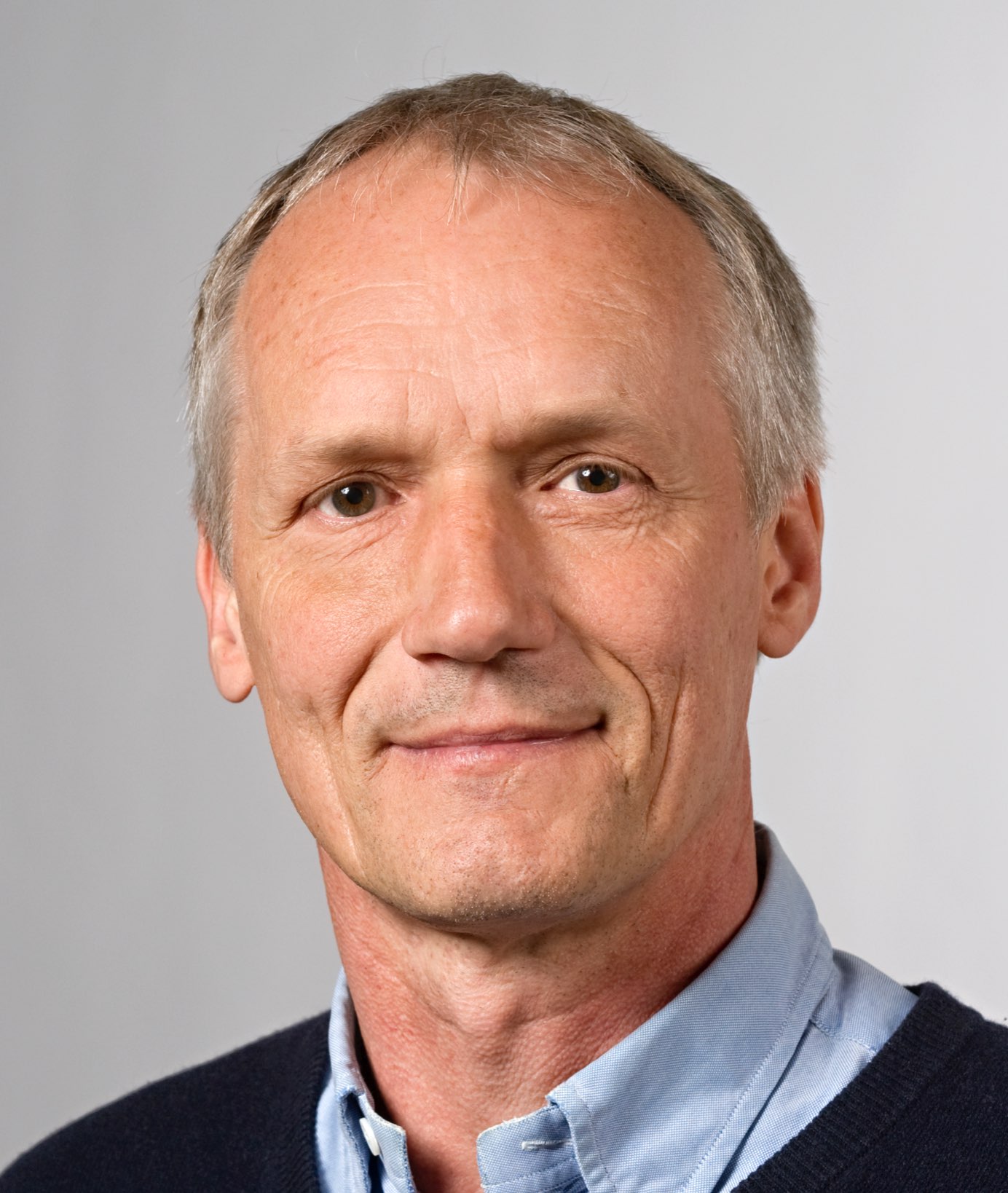
Reimar Lenz (Image: Eckert, Heddergott / TUM)
Degree in Electrical Engineering and IT 1980, Doctorate in 1986, Habilitation in 1988
After completing his studies, his Doctorate and habilitation at TUM, Prof. Reimar Lenz founded CCD Videometrie GmbH in Munich together with his brother Dr. Udo Lenz. As a pioneer in digital photography, he produced the first high-resolution still cameras that are still used successfully today in the fields of molecular biology, pathology and medical technology.
In 2003 he was appointed Associate Professor of Electrical Engineering and Information Technology at TUM. In 2010, he was awarded the Technology Oscar for his pioneering achievements in the development of the ARRISCANNER. This allows analog film material to be digitized with extremely high speed, precision and image sharpness.
He has lived for a long time in Munich-Schwabing together with his wife, the award-winning Munich filmmaker Dagmar Knöpfel. As an alumni donor he supports the TUM University Foundation.
